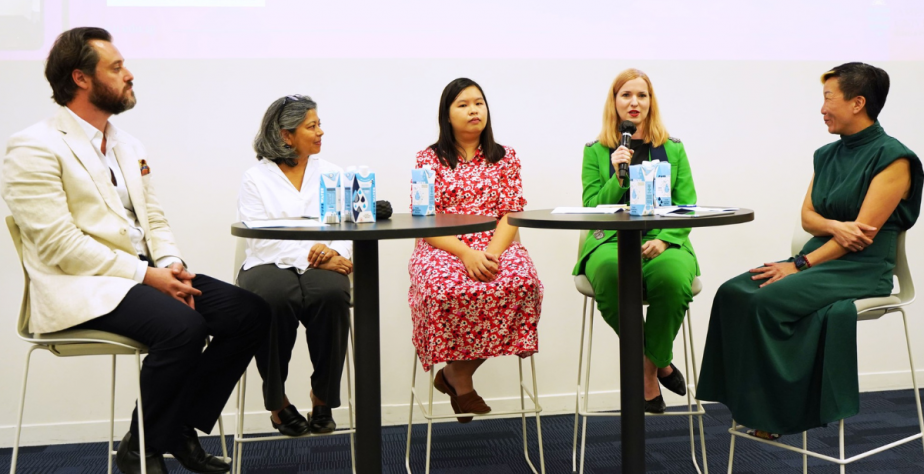Media Releases
Learning about Trends, Challenges, and Opportunities in Sustainability from Inspiring Female Leaders in the Field
Media Releases

When it comes to sustainability, how much does gender play a role, and what can organisations and society do to help foster gender inclusivity in the sector? A panel discussion hosted by James Cook University in Singapore seeks to find out.
Conversations around diversity and inclusion have gained much traction in recent years. A recent report by McKinsey1 highlights a powerful correlation between companies with diverse leadership tend to perform better financially – it found that companies in the top quartile of gender diversity on executive teams were more likely to experience above-average profitability. On another note, apart from financial returns, equality and inclusion can help organisations tap into diverse perspectives to drive innovation and growth.
To further explore this topic of gender inclusivity and equality, in honour of International Women's Day, James Cook University in Singapore organiseda panel discussion on ‘Women in Sustainability: Trends, Challenges, Opportunities’ on 20 March 2024. The discussion was led by moderator Professor May Tan-Mullins, Dean International and Chief Sustainability Officer at James Cook University in Singapore, and Mr Andrew Gazal, Founder and CEO of ESGTech.
The panel comprised of several accomplished female leaders who are working in sustainability:
- Ms Alexandra Mercz — Founder of Synterra Asia
- Ms Michelle Fung — Market Development Senior Associate at Google
- Ms Sumi Dhanarajan — Managing Director, Southeast Asia Forum for the Future
During the session, the diverse panel explored topics such as the unique impacts of women working in sustainability, challenges and employment prospects. Aligned with this year’s United Nations’ theme of “Invest in Women, Accelerate Growth” and International Women’s Day focus on “Inspire Inclusion”, the event also touched on what organisations and society can do to inspire inclusion and further invest in women to accelerate growth for a more sustainable future. For example, the panel discussed if mentorship was adequate to help nurture females in sustainability, how the world can be redesigned to meet the needs of both genders equally, and observations of the financial benefits of having diverse teams.
Engaging questions from the audience prompted insightful discussions, such as whether quotas and KPIs needed to be enforced to address diversity, the topic of “token females”, and if recruitment practices need to be further looked into.
Reflecting on the discussion Ms Mercz says, “One key takeaway I got from the session? Mentorship, while valuable, isn't enough. Real change comes from investing in and sponsoring women, offering them a seat at the table where decisions are made.”
Ms Fung adds, “I believe in empowerment – we need to help more women find the confidence to step up to take up more roles in sustainability, to ensure that we have a diverse range of views to solve our sustainability challenges.” “I think building visibility and supporting the building of this visibility is important when it comes to addressing gender equality. Building truthful empathetic relationships between men and women in the field is also key,” says Ms Dhanarajan.
Professor Tan-Mullins then closed the session with an inspiring remark, “Be bold, be innovative, and be a leader.”
1 Diversity matters even more: The case for holistic impact: https://www.mckinsey.com/featured-insights/diversity-and-inclusion/diversity-matters-even-more-the-case-for-holistic-impact
Find out more about James Cook University in Singapore.
Contacts
Media: Ms Pinky Sibal pinky.sibal@jcu.edu.au / Ms Hoe Shu Rin shurin.hoe@jcu.edu.au